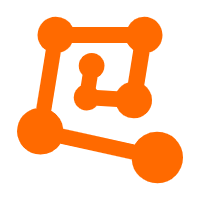AI and machine learning (ML) are enabling Software as a Service (SaaS) providers to deliver even more relevant and valuable products and solutions to customers. This blog lists what we consider to be the Top Five AI-powered SaaS solutions you should evaluate to drive innovation and success at your business.
To go back to basics, SaaS is a model whereby software is licensed on a subscription basis, hosted in a central location in the cloud and made accessible over a web browser. Users start achieving benefits almost as soon as they sign up for a SaaS application; can scale quickly in line with increases in customer numbers and other needs; manage costs effectively; easily access upgrades and new features; and dedicate sometimes scarce internal technical resources to delivering value to the business rather than on maintenance and management, which is taken care of by the SaaS provider.
SaaS differs from Infrastructure as a Service (IaaS), in which storage, networking and compute resources are offered to customers by a service provider, and Platform as a Service (PaaS), in which application infrastructure (middleware) capabilities are offered as a service.
In recent years, SaaS has become a compelling proposition for businesses and developers – analysts Gartner estimated that the SaaS market would climb to $122.6 billion in 2021 and remain the largest segment of the ‘as a Service’ market. Businesses are using SaaS applications to perform a range of important functions – according to Gartner, customer experience and relationship management is the leading SaaS category and is poised to explode to $99.7 billion in 2025, while SaaS-based enterprise resource planning systems are second, with sales expected to reach $35.8 billion in three years’ time.
While SaaS is well established as a model for making software available to users, acceptance among the business community surged during the coronavirus pandemic. Because applications provided by a SaaS business could be accessed over the internet on almost any device, they delivered the flexibility for businesses to dispense with restrictive office-based working – a capability that proved critical during the pandemic.
For many organizations, these tools proved the difference between continuing to operate and shutting down almost completely during the lockdowns implemented by governments to restrict the spread of the virus. As recovery continues to gain momentum, this ease of access further helps enable the transition to hybrid working environments that combine office- or on-site working with working from home or other locations.
With the experiences of the last couple of years having eradicated most hesitancy about using SaaS in their operations, businesses are now accustomed to demanding high standards from applications and providers, including: pricing models attuned to their needs and confidence in the provider’s ability to maintain, update and patch as needed. Businesses also rely on SaaS providers to take responsibility for security, performance, reliability and scalability.
SaaS providers are using AI and ML to deliver more relevant, intuitive and constantly improving services. Here are the Top Five AI-powered SaaS providers and solutions you should consider for your business:
Xero provides cloud accounting software for small to medium businesses and has more than 2.7 million customers worldwide. The organization uses ML to power services such as bank reconciliation predictions – reducing manual data entry and associated errors by predicting contact and account codes for transactions that cannot be matched to invoices or bills using the organization’s bank rules, the provider’s matching logic or memorizations – and, more broadly, to build AI-powered tools that enable businesses and advisors forecast and plan for the future.
“Harnessing AI forms part of Xero’s global data strategy, building on the data flowing through the small business platform to create new capabilities that improve the Xero experience for businesses and advisors, save them time and deliver insights to help them plan for the future,” the provider says.
HubSpot offers a suite of marketing, sales, customer service and CRM software, and is employing AI to enhance its offerings in several ways, including:
AI also helps power capabilities such as the automatic capture of details like names, job titles, phone numbers and addresses from emails, enabling segmentation, routing and reporting; the automatic adding of key companies with industry, location, size, revenue and other data points to customers’ CRM systems, and live chat name recognition that automatically collects contact information like names from live chat messages.
In addition, the HubSpot SEO tool helps customers plan SEO strategies, optimize content and measure search success, with AI enabling the automatic scan of websites and brainstorming of topics to write about.
Grammarly is writing assistance software delivered as a service. The organization uses a system that combines rules, patterns and AI techniques such as ML, deep learning and natural language processing to improve users’ writing across email, blogs and other written communication formats. These techniques enable the product to analyze and process human language at levels ranging from characters and individual words to grammatical structures and sentences, including paragraphs and full texts.
Atlassian provides software development and collaboration tools that can be accessed through the cloud. In 2020, the provider stepped up its use of AI with what it describes as ML-powered ‘smarts’ – data-driven algorithms and techniques ¬– to improve search in products such as team workspace environment Confluence Cloud, project management product Jira Software Cloud and service desk software Jira Service Desk Cloud, and predictive pull request experiences in code testing and deployment product BitBucket Cloud, and foreshadowed the use of smarts to cluster tickets in Jira Service Desk, to help make IT teams more efficient. In more recent developments, Atlassian acquired Percept.AI, an AI-powered virtual agent technology to expand frontline support capabilities in Jira Service Management.
Mailchimp delivers marketing automation and email marketing products and is owned by financial software specialist Intuit. The organization uses AI to provide tools that enable small businesses to provide personalized product recommendations for shoppers, forecast tools for behavioral targeting, develop their own visual assets and write better email subject lines.
These are just a few examples of the surge of AI and ML-powered innovation being delivered by SaaS providers – a powerhouse of creativity that is only likely to grow as the technologies, products and services mature. Your business can now take advantage of more intelligent, constantly improving software to enhance internal efficiencies and identify opportunities.
What Are the Best Offers Available in the Alibaba Cloud March Mega Sale?
How Is Cloud Delivering Dynamic Visuals from Buildings to the Big Screen?
30 posts | 2 followers
FollowIain Ferguson - April 18, 2022
Alibaba Cloud Community - February 22, 2023
Alibaba Clouder - October 28, 2019
Amuthan Nallathambi - June 4, 2023
Alibaba Cloud Community - October 21, 2021
Alibaba Clouder - July 23, 2019
30 posts | 2 followers
Follow Platform For AI
Platform For AI
A platform that provides enterprise-level data modeling services based on machine learning algorithms to quickly meet your needs for data-driven operations.
Learn More Epidemic Prediction Solution
Epidemic Prediction Solution
This technology can be used to predict the spread of COVID-19 and help decision makers evaluate the impact of various prevention and control measures on the development of the epidemic.
Learn More AI Acceleration Solution
AI Acceleration Solution
Accelerate AI-driven business and AI model training and inference with Alibaba Cloud GPU technology
Learn More Tongyi Qianwen (Qwen)
Tongyi Qianwen (Qwen)
Top-performance foundation models from Alibaba Cloud
Learn MoreMore Posts by Iain Ferguson